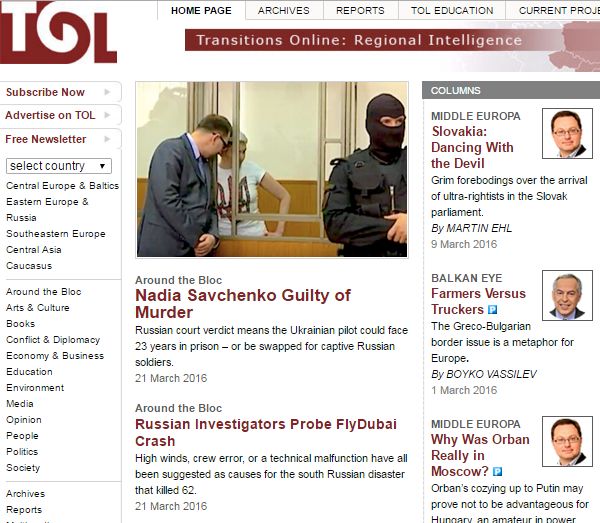
Around the Bloc: Brother of Kosovo Premier Sought German Asylum
Other relatives of Isa Mustafa among many thousand Kosovans who requested asylum in the EU last year.
More...We kindly inform you that, as long as the subject affiliation of our 300.000+ articles is in progress, you might get unsufficient or no results on your third level or second level search. In this case, please broaden your search criteria.

Other relatives of Isa Mustafa among many thousand Kosovans who requested asylum in the EU last year.
More...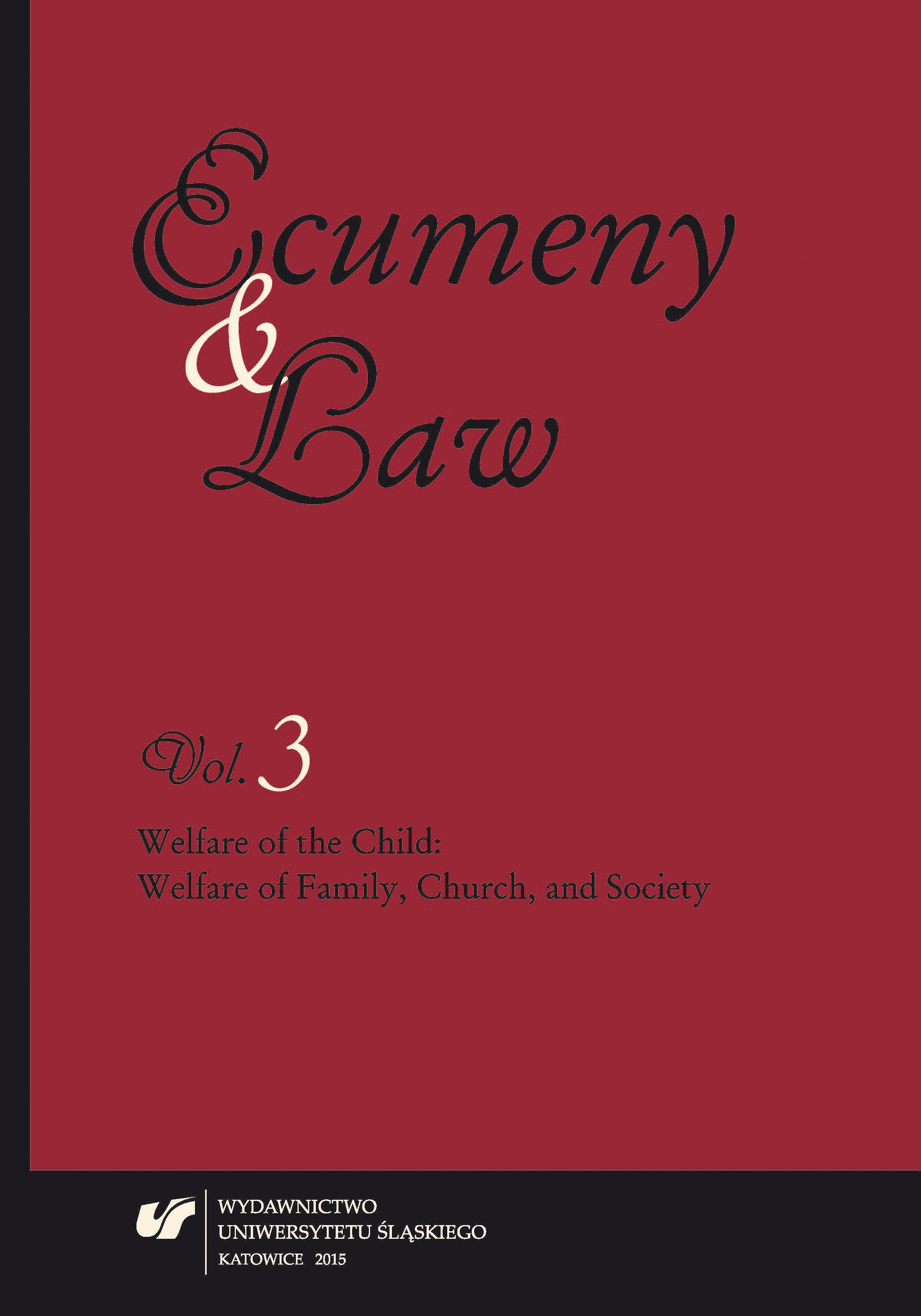
The article entitled “The Good of the Child — the Good of the Family, the Church and Society” deals with the fact that reminds people for many centuries that the child is a good in three aspects: for the family, the Church and society. The family is the first and irreplaceable form of human community. In the family, every person learns to love and to form him- or herself through moral-ethical education in harmonic relationship with other people. These are rational reasons why we should protect the traditional family against marginalization and interventions from government and state administration. Parents have a right to educate their own children and children have a right to have both parents — mother and father. In the Churche very child is a gift from God and living limb of Christ’s mystical body, therefore the Church has a duty to protect human life from conception to natural death. The child needs society and society needs children in order to function and have a future. Thus, the article stresses three convictions: human dignity is inviolable and sacred; with every person comes God’s blessing into the world; any attempt to separate man from God is the most tragic mistake of modern people.
More...
The article is initiated by a contemplation on the contemporary humanization mission of the family. “The family is the basic unit of society. It is the cradle of life and love, the place in which the individual ‘is born’ and ‘grows’” (“Christifideles laici” exhortation, no. 40). However, not all forms of family life serve the human humanization and participate in the development of the society. A family, in order to create the integral human well-being — and that is, in fact, what the humanization is about — should act in a manner respecting this set of goods and values which characterize it as a “community of life and love.” Among the missions of the family the most vital one is the mission of upbringing (according to a paradigm: “the family, first educator”). It is an area in which it is explicitly visible why the proclamation of the “family sovereignty,” in the church documents — especially in the Charter of the Rights of the Family (1983) — is invariably accompanied by the affirmation of the subsidiarity principle. The standards of the Convention on the Rights of the Child (1989), touched upon in the last chapter, constitute a crucial reference point for the domestic legislator: the right to be raised in a family and to maintain contact with both parents. However, it is important to remember that a characteristic feature of the international law standards (binding for countries that ratified them) — similarly as legal acts of lesser legal force, like: recommendations or resolutions, is their conciseness, condensation, but also a peculiar terseness “justified” by the means of a reference to the minimum of common idea concerning a contemporary family relationship, equality of women and men, family autonomy, rights of individual, especially weaker party, that is, a child. This impartial, permanent situation is connected with such advantages as, for example leaving a subject matter freedom margin for a given country legislator: maintaining or passing detailed normative solutions coherent with the state law. However, today it is also not difficult to notice disadvantages: especially the underspecification — in the name of the outlook pluralism principles — the axiological plane of the accepted standards (and precisely, avoiding what we called the logos and ethos of the institutions of matrimony and family). In practice it can signify forcing a legal thought alien in a given culture, or even bear all stamps of a bad lobbing. It is demonstrated — in the last part of the article — by the means of examples, which depict real problems with the implementation of the relevant conventional regulations in the national (Polish) law.
More...
The article presents the genesis and sources of rights of the child. Every child is entitled to the rights of the child just like every adult is entitled to human rights. The child is a human person with dignity, therefore he or she is entitled to all human rights. Moreover, because of his biological and mental immaturity and being subject to the authority of parents the child requires special treatment and care. Social rights are these human rights that are related to employment, social security, health, family life, participation in cultural life and education. They include economic, social and cultural rights, which are these rights that provide for physical and mental development and social security of an individual. Rights of the child are inextricably linked with rights of the family because the child is born into and grows in the family. The Constitution of the Republic of Poland imposes such a pro-family direction of the policy in Art. 71. What is more, there is a close relationship between the economic policy of the state, social policy and the quality of life of the family. The better condition of the family, the lower unemployment, decent wages of parents and a greater care of the state for developing the pro-family policy the greater likelihood that the right of the child to decent social conditions is preserved and better protected.
More...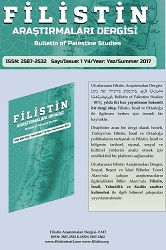
Immediately following the foundation of the state of Israel in 1948, its people were subject to live in a divided land, compromising of a Palestinian Majority of67 per cent. However, following the creation of the state this number was significantly reduced to a mere 16 per cent by military methods and forced migration. Subsequently, the Palestinian population was reduced from about 950,000 to150,000. The Palestinians in the Israeli territory were immediately put under martial law. The principle’s “ensure complete equality of social and political rights to all its inhabitants irrespective of religion, race or sex” ", which was announced in the Declaration of the Establishment of the State of Israel, which has never applied to the Palestinian citizens of Israel.The fact that Israel, which has defended itself as the only democracy in the Middle East for decades, had not recognized any rights granted to Palestinian minorities living within the state of Israel.Therefore could Israel be considered a democracy when it neglects fundamental rights to the Palestinian citizens of Israel?A two state solution for Israeli-Palestinian problems has been discussed internationally since its partition, which was adopted by the United Nations General Assembly on 29 November 1947.However, while these discussions are under way, the presence and position of 1.8 million Palestinian Israeli citizens who inhabit the state,compromising roughly 20 percent of Israel’s total population continue to be neglected.Palestinians living in Israel make up 12 percent of the total Palestinian population in the world, and any solution which is ignoring them is not practically viable for either the State of Israel or Palestinian Authorities.This article aims to discuss the issues of Palestinian citizens of Israel who have been ignored in the peace negotiation process, the dilemmas of the two-state solution proposed by the United Nations General Assembly.
More...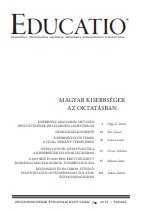
The continuance of a minority community and the perhaps flamboyant use of their native language is highly determined by the rights a given majority state gives this community. In this paper I will show the situation with and the state of Hungarian minority higher education outside Hungary, while looking into persons’ language rights and language in the context of education policy trends. After giving a short introduction to recent developments in the field of Linguistic Human Rights – with a special focus on someone’s right to get (higher) education in one’s mother tongue – I will illustrate the attitudes of Hungary and of neighbouring countries regarding such a right, both in theory and in practice; this will all be based on an analysis of degrees of ratification and implementation of the European Charter for Regional or Minority Languages in different European states.
More...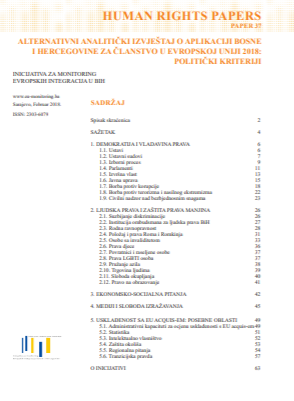
Evropska komisija je pretprošle godine usvojila novi pristup izvještavanju o državama koje se nalaze u procesu pridruživanja, uz prilagođenu metodologiju izvještavanja. Tako će na proljeće 2018. Evropska komisija objaviti izvještaj koji će prethoditi samom mišljenju, a kasnije tokom 2018. biće objavljeno mišljenje o aplikaciji uz analitički izvještaj. U skladu s tim, ovogodišnji Alternativni izvještaj koncipirali smo tako da pokrije što veći broj pitanja koja su bila centralna u politici Evropske unije prema BiH. Ključno pitanje je svakako bio proces izrade odgovora na Upitnik Evropske komisije, koji je BiH uručen u decembru 2016. godine, dok su odgovori predati tek 28. februara 2018. godine. “Alternativni analitički izvještaj o aplikaciji BiH za članstvo u EU“ rezultat je zajedničkog rada organizacija i pojedinaca/ki koji/e čine Inicijativu za monitoring EU integracija Bosne i Hercegovine. Ovaj dokument se nadovezuje na prethodne izvještaje Inicijative, kao i na “Alternativne odgovore organizacija civilnog društva na pitanja Evropske komisije”, koje je Inicijativa izradila 2017. godine. Izvještaj se, kao i prethodni, odnosi na pitanja političkih kriterija za članstvo u EU, s fokusom na stepen demokratičnosti i funkcionisanje države, pitanje vladavine prava i korupcije, ljudskih prava, naročito manjinskih i ranjivih grupa, i tranzicione pravde. Pored toga, u skladu sa promjenama u načinu izvještavanja, u ovom dokumentu naglasak je stavljen i na neke od tema koje se odnose na posebna poglavlja acquis-a, kao što su ekonomsko-socijalna pitanja, administrativni kapaciteti za ocjenu usklađenosti sa pravnom stečevinom EU, intelektualno vlasništvo i regionalne obaveze. Analitički izvještaj daje prikaz stanja u oblastima koje su obuhvaćene političkim kriterijima, pri čemu je detaljnije predstavljen period nakon objavljivanja Alternativnog izvještaja za BiH 2016. godine. Nalazi ovog izvještaja ukazuju na to da u BiH nije postignut nikakav napredak u ključnim oblastima u protekle dvije godine. Političke tenzije pred Opće izbore 2018, kao i nepostojanje stabilne koalicione većine na nivou Bosne i Hercegovine i Federacije BiH, rezultirale su neusvajanjem izmjena Izbornog zakona, čime je došlo do ozbiljnog ugrožavanja izbornog procesa. U Republici Srpskoj zabilježena je druga vrsta parlamentarne krize, potaknuta zabrinjavajućim postupcima izvršne vlasti u vezi sa radom Glavne službe za reviziju javnih institucija. Funkcionisanje pravosuđa na državnom nivou također je ozbiljno ugroženo neizvršavanjem odluka Ustavnog suda BiH koje se odnose na Zakon o krivičnom postupku. Ustavne reforme su i dalje pitanje kojim se vlasti u BiH ne bave, te ne postoji ozbiljan pristup izmjenama Ustava u skladu sa presudama Evropskog suda za ljudska prava u slučajevima “Sejdić-Finci”, “Zornić” i “Pilav”. Reforma javne uprave, iako jedan od proklamovanih prioriteta u procesu pridruživanja EU, nije zabilježila nikakav napredak u proteklom periodu. Ponovo se bilježe pokušaji da se zakonski okvir u različitim oblastima oslabi, umjesto da se poboljša. Organizacije civilnog društva uspjele su zaustaviti proceduru izmjena Zakona o slobodi pristupa informacijama BiH, kojima bi se znatno ograničile slobode pristupa informacijama. Ni prijedlog za uvođenje mogućnosti pomilovanja osuđenim ratnim zločincima nije došao do parlamentarne procedure, ali ovakvi slučajevi ukazuju na zabrinjavajuće tendencije u radu izvršnih vlasti. Sloboda okupljanja i dalje nije garantovana svima pod istim uslovima, o čemu svjedoče različiti slučajevi u Republici Srpskoj i Federaciji BiH. Sloboda medija i uslovi rada novinara/ki gori su u odnosu na prethodni period, a velike su šanse da će se situacija pogoršati u narednom periodu, s obzirom na predstojeću izbornu kampanju. Manjinske i ranjive grupe i dalje žive u teškim uslovima. Diskriminacija i nasilje su sveprisutni, a izmjene Zakona o zabrani diskriminacije još ne daju željene rezultate na terenu u smislu bolje zaštite. Sveobuhvatne antidiskriminacijske politike i dalje ne postoje. Procesuiranje ratnih zločina i suočavanje s prošlošću, kao preduslovi za kreiranje zdravog okruženja i gradnju zajedničke države, predstavljaju dodatni problem. Politička podrška ratnim zločincima od strane lidera političkih stranaka nastavlja da dijeli već izrazito fragmentirano društvo.
More...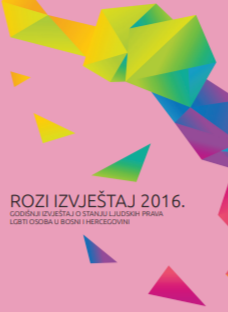
U odnosu na 2014. godinu, 2015. nije donijela značajnu promjenu za stanje ljudskih prava LGBTI osoba: broj slučajeva diskriminacije i nasilja na osnovu seksualne orijentacije koju je Sarajevski otvoreni centar dokumentovao nije se smanjio. Dapače, broj slučajeva kršenja ljudskih prava lezbejki, gejeva, biseksualnih, transrodnih i interspolnih (LGBTI) osoba se povećao. Također se povećao broj LGBTI osoba koje su kontaktirale Sarajevski otvoreni centar u potrazi za pomoći pri traženju azila, promjeni oznake spola u dokumentima i u adekvatnoj psihološkoj podršci (što je posebno naglašeno u slučaju trans* osoba koje prolaze kroz tranziciju – prilagodbu spola). Također, pomoć smo pružali i pri vađenju dokumenata koji su potrebni da bi se sklopio brak/istospolno partnerstvo u državama u kojima je to moguće. Sve ukazuje na to da se nisu desile nikakve strukturalne promjene koje bi značajno utjecale na poboljšanje kvaliteta života LGBTI osoba i njihovu inkluziju u bh. društvo. Način medijskog izvještavanja tokom 2015. godine pokazuje nedovoljno snažan napredak, što se ogleda u povećanju broja članaka koji na neutralan način predstavljaju LGBTI osobe i teme. Trend koji najviše zabrinjava jeste neadekvatno i sporo procesuiranje napada na LGBTI osobe, uglavnom u slučajevima u kojima one koriste pravo na javno okupljanje: slučaj Merlinka iz 2014. godine, te slučaj napada na posjetitelje_ice Art kina Kriterion. I dok policija i pravosuđe u pogledu zaštite LGBTI osoba kojima su povrijeđena prava pokazuju nikakav ili spor napredak, uprkos trogodišnjoj saradnji sa Sarajevskim otvorenim centrom, proljeće 2015. je nagovijestilo novi odnos i pristup zakonodavne i izvršne vlasti na državnom i entitetskom nivou prema unapređenju zakonodavnog i javnopolitičkog okvira za zaštitu prava LGBTI osoba. U maju 2015. godine, državni parlament je održao prvu tematsku sjednicu o stanju ljudskih prava LGBTI osoba u BiH sa tri konkretna zaključka. Početni entuzijazam LGBTI aktivista_ica zbog održavanja tematske sjednice splasnuo je nakon što ni nakon skoro godinu dana zaključci još uvijek nisu provedeni niti ostvareni. Ipak, ovim činom su otvorena vrata saradnje između predstavnika_ca civilnog društva koji se bave pravima LGBTI osoba i parlamentarnih komisija za ljudska prava i ostvarivanje ravnopravnosti spolova. U decembru 2015, ponovo pionirski potez vlasti: Vlada Republike Srpske usvaja Godišnji plan za implementaciju Gender akcionog plana (GAP) za 2016. godinu, koji, između ostalog, sadrži i specifične mjere za zaštitu prava LGBTI osoba. Nakon toga slijedi isti potez Vlade FBiH u martu 2016. godine. Ovo je prvi put da vlade u Bosni i Hercegovini uključuju prava LGBTI osoba u svoje akcione planove. I dok je pred nama da vidimo kako će spomenute mjere biti provedene u praksi, nadu u njihovo ostvarenje posebno održava partnerstvo između Sarajevskog otvorenog centra i institucionalnih mehanizama za ravnopravnost spolova. Vijeće ministara BiH je u decembru 2015. utvrdilo prijedlog Zakona o izmjenama i dopunama Zakona o zabrani diskriminacije, koji sadrži i konkretne amandmane upućene od strane Sarajevskog otvorenog centra, koji bi omogućili sveobuhvatnu zaštitu od diskriminacije za sve lezbejke, gejeve, biseksualne, trans* i interspolne osobe. Zakon u aprilu 2016. ulazi u parlamentarnu proceduru.
More...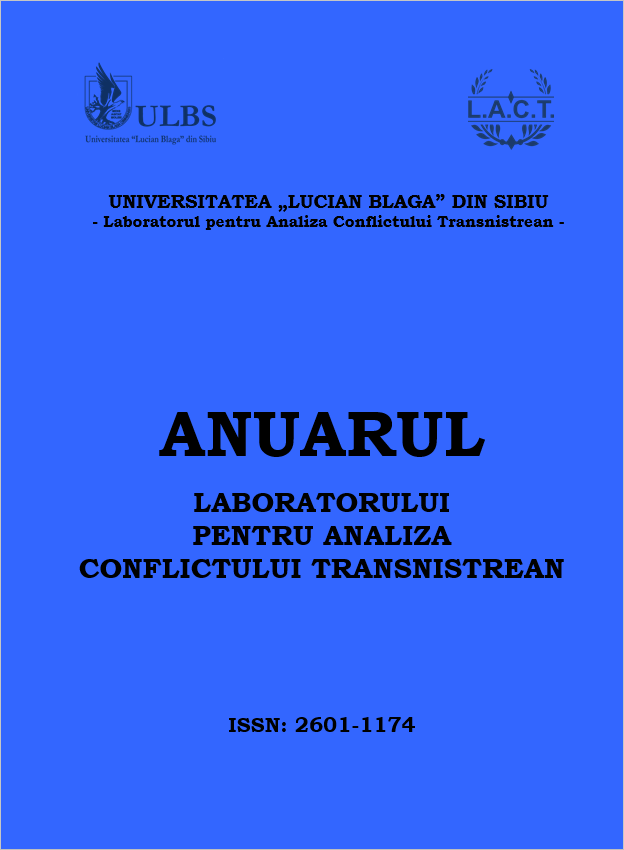
This study reflects the evolutions of the electoral system in the Republic of Moldova, starting with the elections from 1990 to the present. Especially in the 12th legislature’s Parliament, there were deputies from Transnistria (5 districts from the left bank of the Dniester). Than elections took place based on the majority electoral system. Because of the change in the electoral system, the elections of February 24, 2019 will take place in accordance with the rules of the mixed system. There will formed 2 circumspections in Trasnistria, 48 on the state’s territory and 3outside of it. There are about 15% of the country's electorat in Transnistria.
More...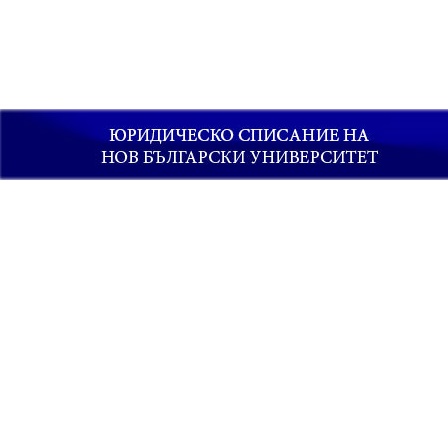
As a prerequisite for the right of the employer to unilaterally terminate the employment contract of a habilitated lecturer, the age of 65 is established quickly and easily with the identity document or with the act of birth of the person. According to the rules of legal technique and rulemaking, this ground had to be edited in a separate point of art. 328, para. 1 of LC. This would make it clearer to distinguish the difference between the two termination grounds now included in point 10. As a de lege ferenda proposal, in the event of a future change of the law, this can be done.
More...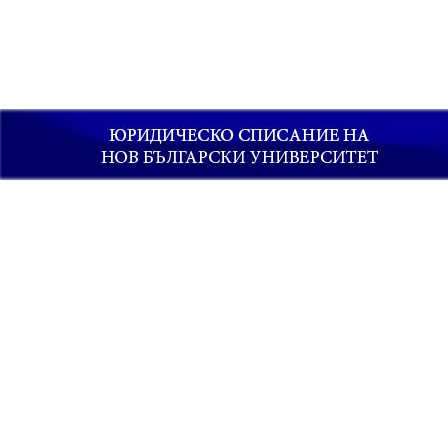
In the second half of the past and the beginning of the 21st century, ILLEGAL DRUG TRAFFICKING IS ONE OF THE MOST DANGEROUS INTERNATIONAL CRIMES 249. It damages or threatens the health and well-being of certain categories and population groups in different countries. In recent decades, the strong trends and widespread scale of the illicit manufacture, distribution and trafficking of narcotic drugs and psychotropic substances has created a disruption and has had a devastating impact on economic, socio-political and cultural relations in every society and in international communication between states and peoples.
More...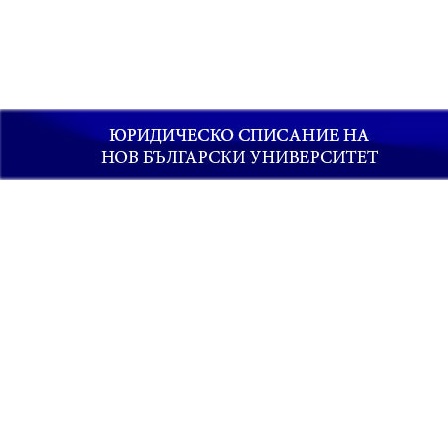
In the following lines we will try to give some light to these legal phenomena, hurrying to note in advance for our humble attempt to penetrate this matter, with the intrinsic, usually for every first attempt mistakes, faults, failures. Experience not useful with your own final results, and above all as a basis upon which it can be discusses. And of course the questions will be more than the answers.
More...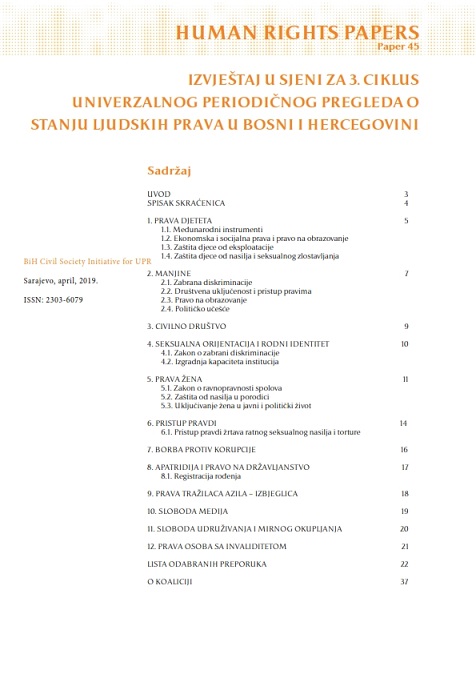
Sarajevski otvoreni centar je u decembru 2018. godine okupio potencijalne članice Inicijative targetirajući organizacije sa ekspertizom u različitim oblastima ljudskih prava. Inicijativa je uspostavljena u decembru 2018. godine, te počela sa radom u januaru 2019. godine. Metodologija je uključivala odabir preporuka iz prethodnog 2. ciklusa Univerzalnog periodičnog pregleda (UPR), desk istraživanje statusa preporuke, istraživanje o mjerama i aktivnostima neophodnim za realizaciju preporuke, statusa realizacije mjera i aktivnosti preporuke u Bosni i Hercegovini, te preporuka nadležnim institucijama. S obzirom da članice koalicije djeluju na polju zaštite i promocije ljudskih prava u BiH već duži niz godina, osim desk istraživanja, također su koristile informacije koje su prikupile radom sa svojim ciljnim grupama. U periodu 2015–2019. godine, Bosna i Hercegovina se suočila s mnogim izazovima koji su imali utjecaja na zaštitu ljudskih prava građana i građanki BiH. Brojne nepravilnosti i pritužbe na izborni proces pratile su prethodne, a i nedavno provedene opće i predsjedničke izbore. Nepoštivanje presuda Evropskog suda za ljudska prava jasan je pokazatelj da vladajuće strukture u BiH nisu spremne na promjene Ustava i izbornog zakona kako bi se ove presude implementirale. Dodatno, sloboda okupljanja na svim nivoima vlasti u BiH i dalje se posmatra kao sigurnosno pitanje, a ne kao ljudsko pravo. Također, najveće smetnje medijskoj slobodi su prijetnje i napadi na novinare/ke i medije, te politički pritisci koji se manifestuju na različite načine. Zakonski okvir kojim se garantiraju ženska ljudska prava u Bosni i Hercegovini rascjepkan je, što ne doprinosi sigurnosti žena i djevojčica u društvu, a znači i neusklađenost s međunarodnim dokumentima. Zaključak ovog izvještaja je taj da su država i njene institucije postigle vrlo malo (ili nikako) napretka u implementaciji preporuka Univerzalnog periodičnog pregleda. Ovim izvještajem potičemo Vijeće za ljudska prava UN-a i sve zemlje članice da izvrše demokratski pritisak na lokalne donosioce odluka izdavanjem svojih preporuka i aktivnostima u ambasadama u BiH, te da podrže napore građana i civilnog društva da se ljudska prava svih građana i građanki BiH poštuju. [...]
More...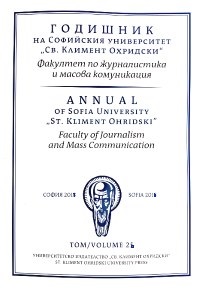
The text relates certain standard-setting judgments of Bulgarian criminal and civil courts in cases brought against the media for insult and defamation. Also, consideration isgiven to the general principles and limitations of the freedom of expression with regard todefamation in the case law of the ECHR.
More...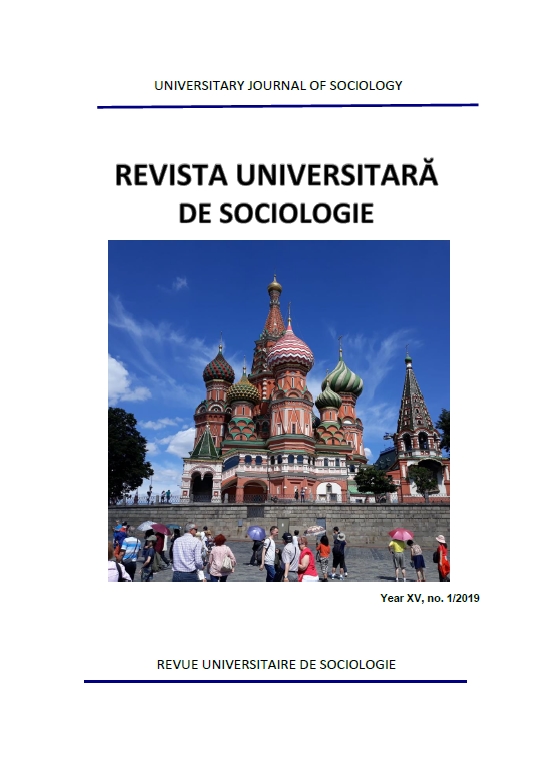
The legislator has enshrined the rights of the child as human rights and transposes into national law the universal standards applicable to all children. There has been a general transposition from a child's needs regulation to a full legal valorization of their rights as a natural person undergoing protection and covering the child’s entire person. The absence or insufficiently outlined characters of the child’s discernment associated with limited life experience are legally compensated by a system of means of protecting both the person and the child's heritage. In scientific papers it is mentioned that, as a rule, in ordinary situations, the legal guardian is called upon to identify the direction of the child's interest and to decide accordingly. In all processes concerning minors (divorce, child custody, establishing or termination of placement) the court can not offer a solution without hearing the minor if he has reached the age of 10 years. Therefore, according to the provisions of article 264 Civil Code, the court of tutorship will settle the dispute only after the minor has been heard in the respective case. The purpose of this paper is to show procedural guarantees and psychological implications in the extraordinary situations in which the child can be found. Special situations arise from external forces generated by parents or others in civil society. The magistrate must ensure the trust that the relationship between him and the child should be based on. The hearing technique essentially pursues the observance of the general principles of the protection and promotion of child rights in close connection with the principle of truth finding by the magistrate.
More...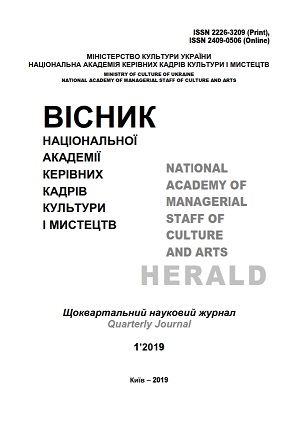
The purpose of the article is to characterize the political and legal means of regulating the cultural segment of the functioning of national minorities in Ukraine during the period of independence and to analyze the effectiveness of the legal and regulatory framework in resolving existing problems. Methodological approaches are based on polydisciplinary principles of studying the sphere of touch of ethnonational, legal, political and cultural phenomena. This involves taking into account theoretical developments in each of the scientific disciplines within which the specified range of issues is developed, as well as the application of the newest conceptual categorical apparatus. Through the integrated use of interdisciplinary approaches, the state's steps to regulate the cultural sphere of activity of ethnic and national minorities in modern Ukraine are traced, shortcomings and perspectives are overcome. Scientific novelty of the research is to systematically analyze the factors that influence the process of adopting political and legal documents that meet modern international standards and could accelerate the resolution of pressing problems in this area. Conclusions. The current internal and foreign political situation in Ukraine hinders the rapid resolution of the problems accumulated over many decades in the political and legal regulation of the cultural segment of ethnic minority activity. The action of destructive internal and external factors artificially limited the ability of the state in this regard. At the same time, there are grounds for claiming that there is no goodwill in the political elites that are responsible for resolving such issues. It is necessary to realize that in a rapidly changing world, regulatory support for ethnic policy must respond promptly to the challenges of time and be updated accordingly. The problem of developing adequate tools for the legal provision of cultural rights of ethnonational minorities, as well as the prevention of crisis situations, remains a pressing issue. In order to achieve effective steps in this direction, the state must properly organize their financial and material support.
More...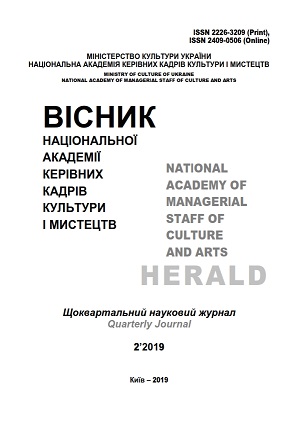
The purpose of the article is to analyse the development trends of the global culture of cybersecurity in contemporary international discourse devoted to outlining and framing the institutional and legal modalities for responsible behaviour of states and other actors in cyberspace. Methodology. The research methodology integrates dialectic, analytical and comparative methods. The scientific novelty lies in the revealing of the differences in political priorities, despite the formal consistency of the values, at the current stage of international discourse around the rules of responsible behaviour of a State in cyberspace emerged from the analysis of the results of the discussions of the First Committee of the UN General Assembly at its 73rd session (October 2018) entitled ‘Developments in the field of information and telecommunications in the context of international security’. Conclusions. The international discourse around the values and principles of the global cybersecurity culture is at an early stage and is essential for the formation of a coordinated position of international political actors regarding norms of responsible behaviour in cyberspace. In such way, by identifying the influencing factors and the ruling forces on behalf of the political actors, it is possible to understand the trends and predict its perspectives both from the point of view of institutionalization in the contemporary international order and legal framework that embody and protect human values as a core component of global culture in cyberspace.
More...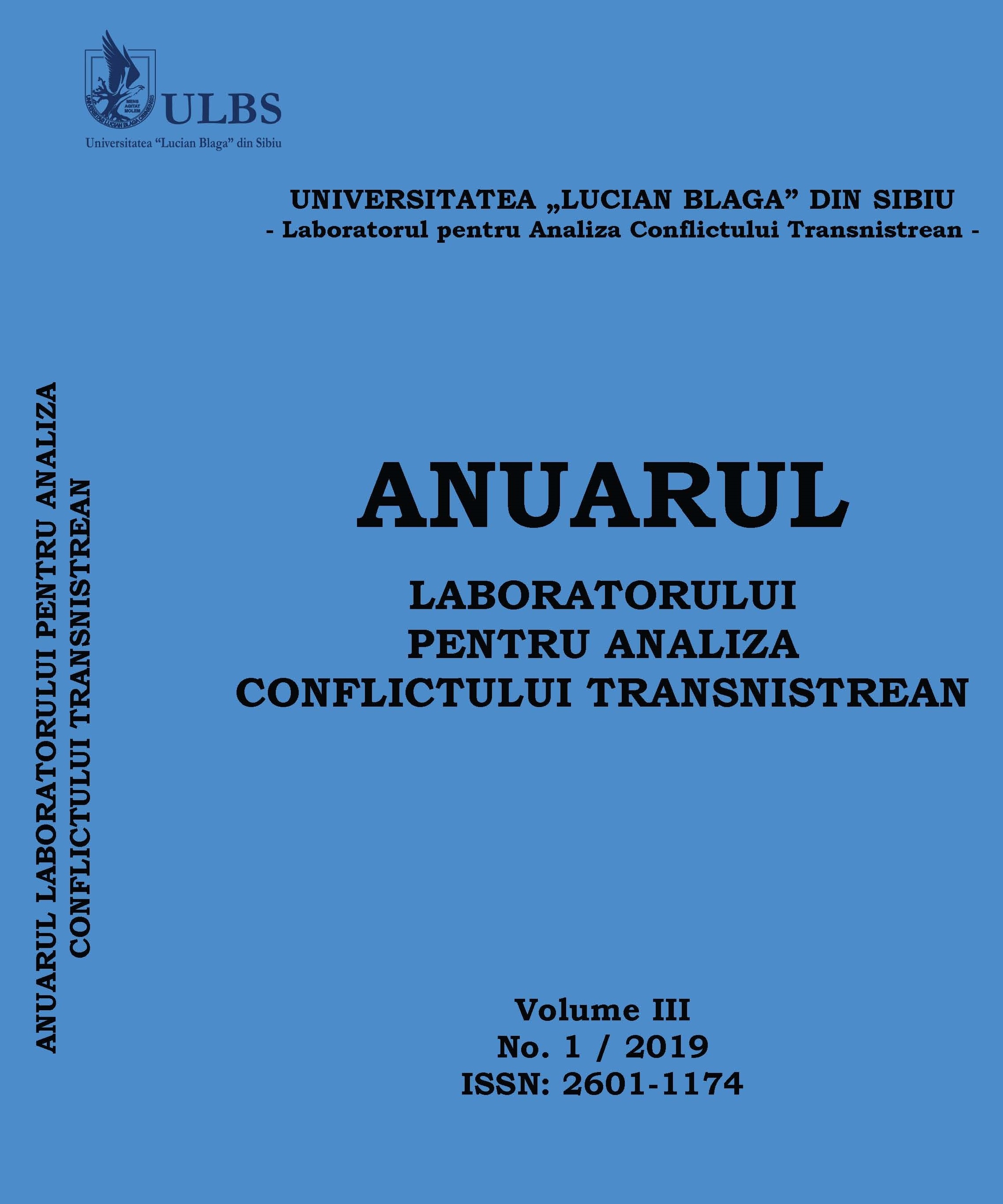
By exercising its contentious and advisory powers, the Strasbourg Court has an important role to play in identifying and filling gaps in public international law. As the European Convention only proposes a list of fundamental human rights and freedoms, without defining them, the essential role in their interpretation and application rests with the European Court of Human Rights.The application of the Convention in cases concerning human rights violations within the territory with separatist regimes raises the question of the Convention's opposition to these regimes and of their liability under the Convention. As a general rule, separatist regimes are not parties to international treaties on human rights, which would provide for certain obligations for them. However, there are situations in which the rules of international law entail obligations imposed on non-state formations.
More...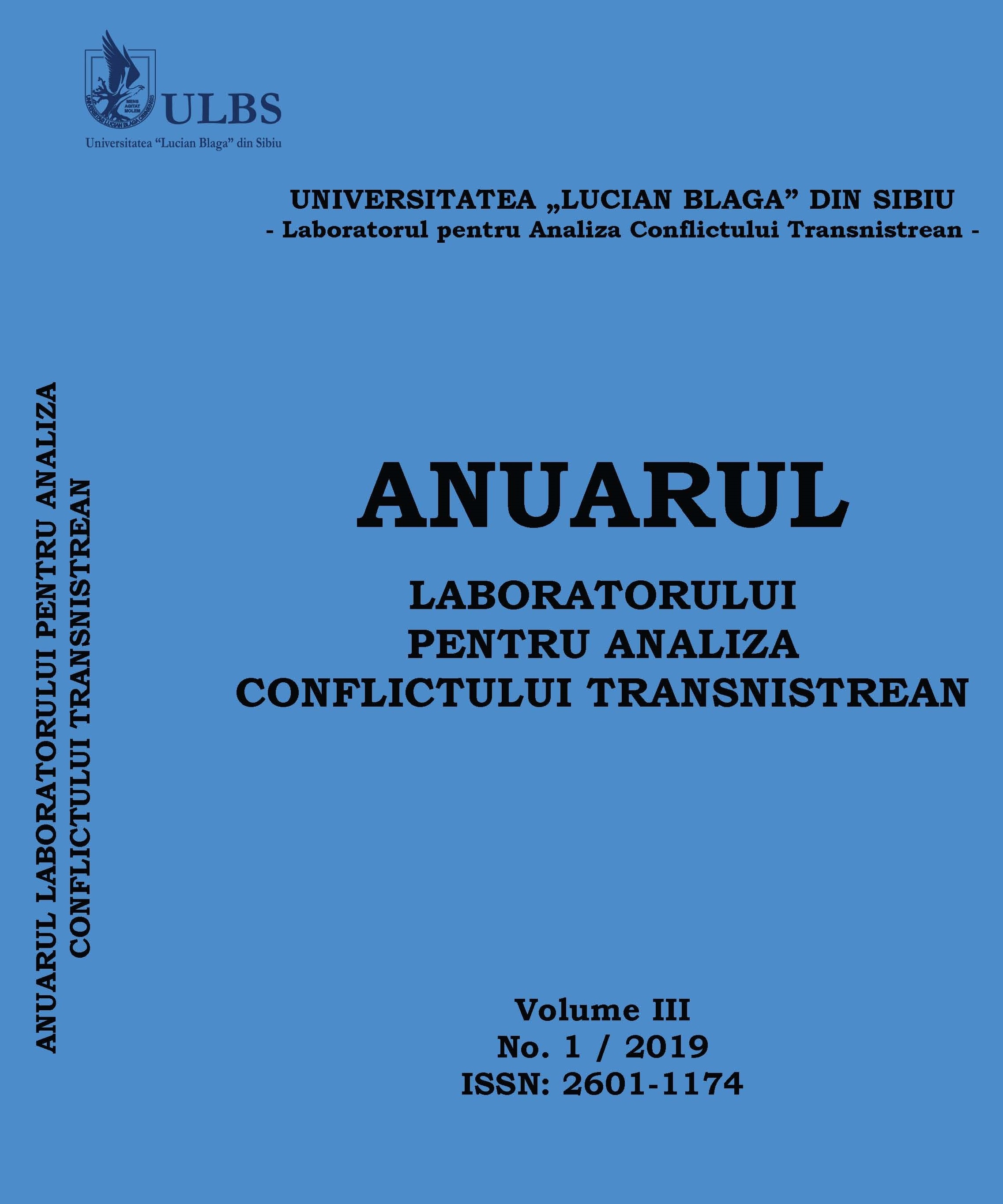
Amnesty and punishment are two important institutions of transitional justice. Discussions on the application of one or the other are quite common, each part having its arguments. One thing we can state for sure – prioritizing only an institution, it will certainly lead to transitional justice promoted by touching objects – a company post-conflict reconciliation is impossible, this process is a complex one, in which an important role belongs non-legal rules. However, transitional justice trying to find that common ground, that would satisfy society in integrum.
More...
By exercising its contentious and advisory powers, the Strasbourg Court has an important role to play in identifying and filling gaps in public international law. As the European Convention only proposes a list of fundamental human rights and freedoms, without defining them, the essential role in their interpretation and application rests with the European Court of Human Rights.The application of the Convention in cases concerning human rights violations within the territory with separatist regimes raises the question of the Convention's opposition to these regimes and of their liability under the Convention. As a general rule, separatist regimes are not parties to international treaties on human rights, which would provide for certain obligations for them. However, there are situations in which the rules of international law entail obligations imposed on non-state formations.
More...